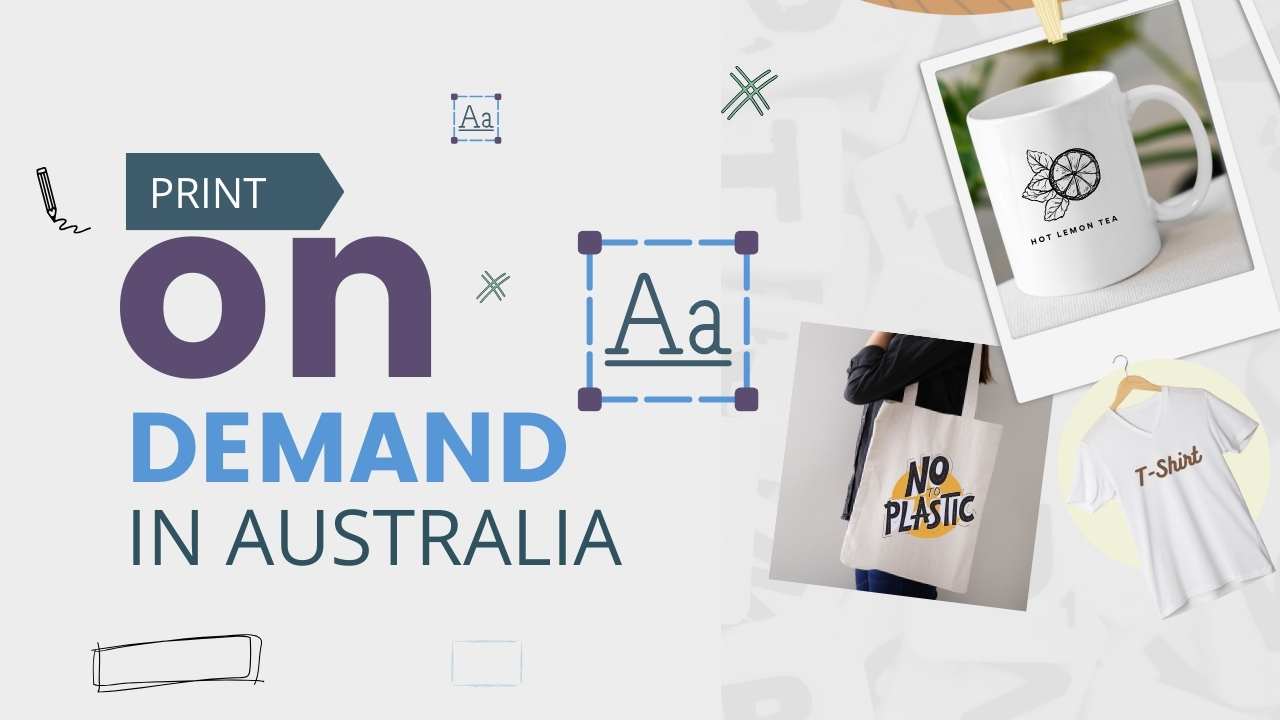Table Of Content
Introduction to Website Titles
Have you ever wondered what makes you click on a link when you search for something online? That catchy headline you see in the search results – that’s the website title. It might seem like a small detail, but it holds a lot of power. A well-crafted website title is like the perfect storefront sign: it draws people in, tells them what they can expect, and convinces them to step inside. Imagine you’re selling artisanal coffee.
A website title like “Home” isn’t going to attract many coffee lovers. But something like “Buy Artisanal Coffee Online – Freshly Roasted & Delivered” instantly tells people what you offer and invites them to explore more. It’s clear, engaging, and packed with keywords that help search engines understand your page.
In this blog, we’ll explore why website titles are so important, how they can boost your visibility on search engines, and how you can craft the perfect title for your pages. Whether you’re just getting started with your website or looking to optimize your existing content, understanding how to create effective website titles is crucial.
Ready to dive in and discover the secrets to creating website titles that not only capture attention but also improve your SEO? Let’s get started!
What Is a Website Title?
A website title, also known as a title tag, is essentially the headline of your webpage. It’s the clickable text that you see in search engine results, and it also appears at the top of your browser tab when you open a page. Think of it as a brief summary that tells both users and search engines what your page is all about.
For example, if you have a blog post about the benefits of yoga, your website title might be something like “10 Amazing Benefits of Yoga for Your Health.” This title gives a clear idea of the content and makes it enticing for someone interested in yoga to click on it.

In simple terms, a website title serves two main purposes:
- Attracting Visitors: It grabs the attention of potential visitors and encourages them to click through to your site.
- Helping Search Engines: It helps search engines understand the topic of your page, which is crucial for SEO.
It’s also important to know the difference between a website title, a title tag, and an article title.
- Title tag: This is part of the HTML code that sets the title of a web page. It’s found in the head section of the HTML. Search engines use it to figure out what the page is about, and it’s often what you see as the page title in search results.
- Article title: This is the headline of a specific article or blog post on a website. You’ll find it at the beginning of the article, giving you a quick idea of what the article is about.
Why Is a Website Title Important for SEO?
Website titles, or title tags, are more than just the headline of your webpage. They play a crucial role in SEO (Search Engine Optimization) and can significantly impact your website’s visibility and ranking on search engines like Google. Here’s why website titles are so important for SEO:
- First Impressions Matter
Your website title is often the first thing potential visitors see in search engine results. It’s like the headline of an article – it needs to be compelling enough to make someone want to click. A well-crafted title can attract more clicks, which can lead to higher traffic and better engagement on your site.
Example: Consider two titles for a blog post about baking bread:
- Homemade Bread
- How to Bake Delicious Homemade Bread – Easy Recipe
- Relevance and Ranking
Search engines use website titles to understand the content of your page. When your title includes relevant keywords, it helps search engines match your page to users’ search queries. This can improve your ranking in search results, making your site more visible to potential visitors.
“Your title tag is your first, and maybe only, chance to attract a visitor to your website. It’s crucial for SEO and click-through rate.” – Moz - Increased Click-Through Rates (CTR)
A high CTR indicates that your title is resonating with users and attracting clicks. Search engines consider CTR as a factor when ranking pages. If your title is compelling and relevant, it can lead to more clicks, which can improve your ranking over time.
- User Experience
A clear and relevant title enhances user experience by setting accurate expectations. When visitors know what to expect from your page, they are more likely to stay and explore, reducing bounce rates and increasing engagement.
Example: A title like ‘Top 10 Tips for Starting a Vegetable Garden’ clearly tells users what the content is about, making it more likely that visitors interested in gardening will click and stay on the page. - Social Sharing
When your webpage is shared on social media, the title is often the primary piece of information that appears. An engaging and descriptive title can encourage more shares and clicks from social media platforms, driving additional traffic to your site.
- Brand Recognition
Including your brand name in the title can enhance brand recognition and trust. It also helps users quickly identify your content, especially if they are familiar with your brand.
Example: ‘Ultimate Guide to SEO- Fathershops’ combines a keyword-rich title with the brand name, making it clear, authoritative, and trustworthy.
The second title is more descriptive and appealing, making it more likely to attract clicks.
How can you find the title of the website
Finding the title of a website is quite simple and can be done in several ways. Here’s how you can easily locate it:
- Browser Tab
The title of a website is displayed at the top of your browser tab. Simply look at the tab of the page you are on, and you’ll see the title there.
- View Page Source
If you want to see the title in the HTML code, you can view the page source:
- In Chrome
- Right-click on the webpage and select ‘View Page Source’ or press Ctrl + U.
- A new tab will open displaying the HTML code. Look for the “title” tag near the top.
- In Firefox
- Right-click on the webpage and select ‘View Page Source’ or press Ctrl + U.
- A new tab will open with the HTML code. Locate the ‘title’ tag.
- In Safari
- Go to the Safari menu and select ‘Show Page Source’ or press Command + Option + U.
- The HTML source code will appear in a new window. Look for the ‘title’ tag.
- In Chrome
- Search Engine Results
When you search for something on Google, the titles of web pages appear as clickable links in the search results. These clickable links are the website titles.
- SEO Tools
Various SEO tools can help you find and analyze website titles:
- Google Search Console: Provides insights into your website’s performance, including titles.
- SEMrush: Shows the titles of your web pages and suggests optimizations.
- Ahrefs: Helps analyze titles on your site and competitors’ sites.
- Browser Extensions
There are browser extensions that display the title of any webpage you visit:
- SEOquake: An extension for Chrome and Firefox that provides SEO metrics, including page titles.
By using these methods, you can easily find the title of any website or webpage, which is essential for understanding and improving your site’s SEO.
How to Create a Perfect Website Title?
Creating the perfect website title is both an art and a science. It requires a balance of creativity to capture attention and technical know-how to optimize for search engines. Here are some practical steps to help you craft effective and compelling website titles:
- Include Primary Keywords
Identify the primary keyword for your page and include it in your title. This helps search engines understand what your page is about and match it to relevant search queries.
- Example: If your page is about tips for healthy eating, your primary keyword might be ‘Healthy eating tips.’A good title could be ’10 Healthy Eating Tips for a Better Lifestyle.’
- Keep It Concise
Aim for 50-60 characters to ensure your title is fully displayed in search results. Titles that are
too long may get cut
off, losing important information and impact.
- Example: Instead of ‘Everything You Need to Know About the Best Practices for Healthy Eating’ a concise title could be ‘Best Practices for Healthy Eating: What You Need to Know.’
- Make It Engaging
Craft a title that piques interest and encourages clicks. Use power words, numbers, and clear
benefits to make your
title stand out.
- Example: A title like ‘Learn to Cook’ is bland. Instead, try ‘Master the Art of Cooking: 5 Easy Recipes to Get Started.’
- Use Branding
Include your brand name to increase recognition and trust, especially if your brand is well-known.
This can help attract
clicks from users who are familiar with your brand.
- Example: ‘SEO Checklist’ vs. ‘SEO Checklist by Fathershops ‘ – Boost Your Rankings
- Avoid Keyword Stuffing
=Use keywords naturally and avoid overloading your title. Keyword stuffing can make your title look
spammy and can hurt
your SEO rather than help it.
- Example: Instead of ‘Healthy Eating Tips Healthy Food Healthy Lifestyle’ use ’10 Essential Healthy Eating Tips for a Balanced Lifestyle.’
- Be Specific and Clear
Clearly describe what the page is about. Specific titles set accurate expectations and attract the
right audience.
- Example: ‘Guide’ vs. ‘Ultimate Guide to Mediterranean Diet: Benefits and Recipes’
- Create a Sense of Urgency or Curiosity
Encourage users to click on your link by creating a sense of urgency or curiosity. This can make your
title more
compelling.
- Example: ’10 Tips for Better Sleep’ vs. ’10 Tips for Better Sleep – You Won’t Believe #5!’
Mistakes to Avoid When Creating a Website Title
Creating an effective website title is crucial for attracting visitors and improving your search engine ranking. However, there are common mistakes that can undermine your efforts. Here are some key pitfalls to avoid:
- Being Too Vague
A vague title doesn’t provide enough information about the content of your page. Users and search
engines need clear and
specific titles to understand what your page is about.
Example
- Vague: Learn More
- Clear: Learn More About SEO Best Practices for 2025
- Ignoring Keywords
Keywords are essential for SEO. Failing to include relevant keywords in your title means you’re missing an opportunity to help search engines and users understand your page’s content.
Example- Without Keywords: Amazing Tips
- With Keywords: 10 Amazing SEO Tips to Boost Your Rankings
- Overstuffing Keywords
While keywords are important, overloading your title with them (known as keyword stuffing) can make
your title look
spammy and decrease its readability. Search engines may also penalize your page for keyword
stuffing.
Example
- Overstuffed: SEO Tips SEO Tricks SEO Advice for Better SEO
- Balanced: 10 Essential SEO Tips and Tricks for Better Rankings
- Making Titles Too Long
Titles that are too long may get cut off in search results, losing important information. Aim for
50-60 characters to
ensure your title is fully displayed.
Example
- Too Long: Everything You Need to Know About SEO Best Practices for 2025 and How They Can Help You
- Concise: SEO Best Practices for 2025: Essential Tips
- Neglecting Mobile Optimization
With a significant amount of search traffic coming from mobile devices, it’s crucial to ensure your titles are mobile-friendly. Long titles may not display well on smaller screens.
Example- Not Mobile-Friendly: The Ultimate Guide to Understanding and Implementing the Best SEO Practices for 2025
- Mobile-Friendly: 2025 SEO Guide: Best Practices for Success
- Using Clickbait Titles
Clickbait titles may attract clicks initially, but if the content doesn’t match the promise of the title, it can lead to high bounce rates and loss of trust. Ensure your title accurately reflects the content of your page.
Example- Clickbait: You Won’t Believe What Happened Next!
- Accurate: Top 5 Surprising Benefits of Regular Exercise
- Not Being Unique
Each page on your site should have a unique title. Duplicate titles can confuse search engines and users, and may harm your SEO efforts.
Example- Duplicate Titles: ‘Home’ for multiple pages
- Unique Titles: ‘About Us’ – Our Story and Mission and ‘Contact Us’ – Get in Touch
- Ignoring Branding
Including your brand name in the title can enhance recognition and trust. It also helps users quickly identify your content.
Example- Without Branding: Top SEO Tips
- With Branding: Top SEO Tips – YourCompany
- Lacking Engagement
A dull or generic title may not capture attention. Use engaging language and power words to make your title stand out.
Example- Dull: Travel Tips
- Engaging: Top 10 Travel Tips for an Unforgettable Adventure
Tools for Analyzing Website Titles
Here are some tools you can use to analyze website titles:
- Ahrefs: Ahrefs is a comprehensive SEO toolset that allows you to analyze the titles of your competitors’ websites, find keyword opportunities, and optimize your titles for better search engine ranking.
- SEMrush: SEMrush offers a Title Tag Optimization tool that helps you craft effective and optimized titles. It provides insights into competitors’ titles and suggests improvements based on keyword analysis.
- Yoast SEO: Yoast SEO is a popular WordPress plugin that includes a title analysis feature. It provides real-time feedback on your titles, ensuring they are optimized for search engines.
- Screaming Frog: Screaming Frog’s SEO Spider Tool allows you to crawl websites and extract title tags. It helps you analyze the length, uniqueness, and relevance of your titles across your website.
- Google Search Console: Google Search Console provides data on how your titles are performing in search results. You can see which titles are driving the most traffic and identify opportunities for improvement.
- Ubersuggest: Ubersuggest offers a keyword and content analysis tool that helps you optimize your titles based on search volume and competition. It also provides title suggestions and competitor analysis.
Conclusion
In conclusion, the importance of crafting effective website titles cannot be overstated. Titles are often the first impression users have of your content, and they play a crucial role in both user engagement and SEO performance. By utilizing the right tools and techniques, you can optimize your titles to be both appealing to readers and favorable to search engines.
Tools like Ahrefs, SEMrush, and Yoast SEO provide comprehensive insights and recommendations for title optimization, ensuring your titles are keyword-rich, relevant, and compelling. Additionally, tools such as Screaming Frog, Google Search Console, and Ubersuggest offer valuable data and analysis to refine your titles further.
Remember, a great title should be clear, concise, and reflective of the content it represents. It should entice readers to click while accurately describing what they can expect to find. By consistently analyzing and optimizing your website titles, you can enhance your site’s visibility, attract more visitors, and ultimately drive greater success for your online presence.



 Integrated Supplier Network
Integrated Supplier Network



